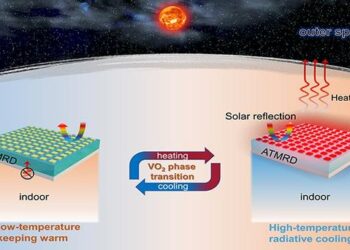Dr. Ashley Laughney, an assistant professor of physiology and biophysics at Weill Cornell Medicine, has won a 2024 Pershing Square Sohn Prize for Young Investigators in Cancer Research.
Dr. Ashley Laughney, an assistant professor of physiology and biophysics at Weill Cornell Medicine, has won a 2024 Pershing Square Sohn Prize for Young Investigators in Cancer Research.
The Pershing Square Sohn Prize Cancer Research Alliance has been awarding the prize annually to early-career scientists based in the New York area since 2014. Prizes are given to scientists pursuing innovative cancer research and taking risks that may not be supported by traditional funding. Winners receive $250,000 a year for up to three years and gain access to networking opportunities and annual retreats with past winners.
The prize will allow Dr. Laughney to further develop and test a novel single-cell functional genomics method her lab has created, called SatSeq. Scientists studying a protein of interest in human disease typically investigate it over many decades, one function at time. This new tool seeks to rapidly map all the functions of a protein, in one experiment, allowing investigators to comprehensively map the role of their chosen protein across multiple contexts in a matter of months.
“I’m an engineer and computational biologist by training; we build tools to solve complex problems in cancer research,” said Dr. Laughney, who is also an assistant professor of computational cancer genomics in computational biomedicine.
“Traditional funders, like the NIH, tend to support studies that modify a single gene and observe a corresponding change in behavior to demonstrate molecular mechanisms driving cancer progression. Typically, these approaches lack scale,” she said. “Here, with SatSeq, we are able to combine the statistical power of high-throughput association studies that examine thousands of different genes to see which correlate with a given outcome, with the mechanistic understanding of studies that disrupt one gene at a time.”
Dr. Laughney’s lab at Weill Cornell Medicine focuses on studying how cancer cells communicate with each other and the cells around them in the tumor microenvironment, to learn how they evade destruction by immune cells or develop resistance to drugs. In particular, her team has been studying the stimulator of interferon gene (STING) protein, which is traditionally thought to restrict tumor growth. However, together with collaborating scientists at Memorial Sloan Kettering Cancer Center, they found the STING protein can paradoxically promote metastasis, or the spread of cancer, when cancer cells with chromosomal instability become desensitized by its persistent activation.
“We hope to map the context-dependent functions of STING across multiple cancer types to reveal new treatment targets, which could help us better identify patients most likely to respond to those targeted therapies,” said Dr. Laughney, also a member of the Sandra and Edward Meyer Cancer Center at Weill Cornell Medicine.
“I am humbled by this award and immensely grateful to the talented trainees I’m privileged to work with every day,” she said. “We built a promising new technology for solving a complex problem and we’re excited to continue our work.”
Discover more from Science
Subscribe to get the latest posts sent to your email.



